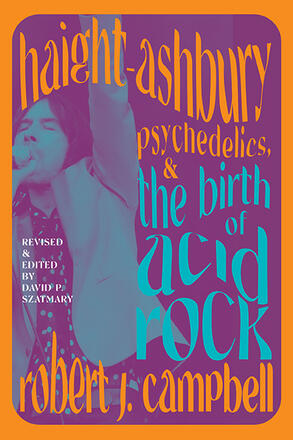
Haight-Ashbury, Psychedelics, and the Birth of Acid Rock
Alternative formats available from:
Illuminates the beginnings, downfall, and legacy of the acid-inspired, spontaneous, and playful approach to life and music in Haight-Ashbury from 1964–1967.
Description
Combining literature, social history, and personal experience, author Robert J. Campbell traces the birth, downfall, and legacy of the innovative, playful, and spontaneous counterculture launched in 1960s Haight-Ashbury. In a lively writing style, Campbell describes the discovery of LSD, its slow adoption, and the promotion of it by Timothy Leary and Ken Kesey, who each became missionaries for the drug. Campbell relates how LSD allowed users to enhance the perception of alternative realities and describes its wide-scale use in the Haight-Ashbury District of San Francisco from 1964 to 1967 that led to imaginative and creative change, including collaborative behavior, a new way of looking at the world, acid rock, and a host of other paradigm shifts. Haight-Ashbury, Psychedelics, and the Birth of Acid Rock concludes by examining the inherent dangers of constant drug use as well as the positive legacy of the 1960s, including a focus on health food, cooperative living arrangements, recycling, battling climate change, free medical help, and personal responsibility. The book incorporates ideas from a broad range of disciplines for general readers for a unique and fresh look at this impactful era.
Robert J. Campbell (1950–2016) was a 60s activist, Beat scholar, and editor of the Colorado Springs Independent. David P. Szatmary is former Vice Provost at the University of Washington. His books include Jazz: Race and Social Change (1870–2019) and Rockin' in Time: A Social History of Rock-and-Roll.
Reviews
"A diverting and informative tour and an excellent companion to William Schnabel's Summer of Love and Haight." — Library Journal
"…a vivid and up-close portrait of a much mythologized place and time. Hippies will welcome this deep dive into the culture of the Haight." — Publishers Weekly